"Special Forces" contribute to victory
Since 1952, President Ho Chi Minh has affirmed that “culture and art are also a front”. Looking back at the literature written about the resistance war against the US to save the country, it can be clearly seen that literature of this period has always been one of the sharp weapons contributing to “cutting the Truong Son range to save the country” and “even a thousand years later, it is still strong enough to light the way”.
As a special “army”, literature has been a pioneer standing on the front line against the US. Sharing the atmosphere of “those happy days, the whole country set out”, hundreds of writers and poets volunteered to go to the battlefield. They “went without regretting their lives”, they “fought for the people who live forever, Vietnam”, holding both guns and pens, dedicating their youth and literary talent to the Fatherland. “The fiery atmosphere of “setting out” in real life was breathed into literature, condensing and shining into epic images symbolizing patriotism in works with a pure revolutionary ideal. Literature has built characters like halos in the epic sky, shining the light of ideals, guiding readers towards the noble and heroic” - Lieutenant Colonel, Doctor of Literature Pham Duy Nghia shared.
Writers and journalists in the Tra My forest area ( Quang Nam ) during the anti-American war. Photo archive
Growing up during the resistance war against the US, writers such as Nguyen Thi, Nguyen Dinh Thi, Anh Duc, Phan Tu, Nguyen Khai, Nguyen Minh Chau, Ho Phuong, Nguyen Quang Sang, Huu Mai, Le Luu, Xuan Thieu, Trieu Bon... along with poets Thu Bon, Pham Tien Duat, Nguyen Khoa Diem, Chinh Huu, Thanh Thao, Nguyen Duc Mau, Le Anh Xuan, Che Lan Vien... created a unique literary stream, contributing to building the country in the North, encouraging fighting in the South, liberating the nation and unifying the country. Many sentences and poems of literature of this period have become symbols, known to many later generations, such as "Con cai lai quan cung danh" in "Nguoi me cam gun" by Nguyen Thi, or "Life arises from death, happiness appears from sacrifices and hardships, in this life there is no dead end, only boundaries, the essential thing is to have the strength to cross that boundary" in "Mua Lac" by Nguyen Khai.
According to poet Nguyen Huu Quy, “the resistance literature once occupied the number 1 position in Vietnamese literature for three decades from 1946 to 1975. The war against the US ended, but literature about the country and people in the past, soaked in sweat, blood and tears, seemed to be a flow that had never stopped in peace ”. Continuing the flow of resistance literature against the US during the war, after 1975 and after Doi Moi 1986, were names such as Nguyen Trong Oanh with “May cuoi cam troi”, “Dat trang”; Xuan Duc with “Cua gio”, “Ben do xua lang lang”; Nam Ha with “Ngay ram long”, “Trong vui tam iron”, “Dat mien dong”; Chu Lai with “Nang dong delta”, “Gio khong bong tu bien”, “An an di quang”; Khuat Quang Thuy with “Trong con gio luc”, “Doi chien”; Nguyen Tri Huan with “In 1975, they lived like that”, “The swallows fly”, Nguyen Binh Phuong with “You and them”, Thanh Que with “Burning sand”, Trung Trung Dinh with “Soldiers in battle”, “Against the tide of death”, Duong Huong with “The wharf without a husband”, Ly Lan with “Women's novel”...
Writer Nguyen Binh Phuong, Editor-in-Chief of the Army Literature Magazine and Vice President of the Vietnam Writers Association, commented: “During the war, literary works were born in time to be present, to encourage, motivate, and strengthen the courage of those who directly fought with guns. After the country was unified and peaceful, literature, with its conscience, continued to reflect and portray the beauty of the Vietnamese people during the war, while at the same time seeking to mend the wounds and the mental ravages left by the war, analyzing, evaluating, and finding lessons as well as lessons to educate the future tradition.” This can be considered "a journey of novels on the theme of revolutionary war" with many awards given such as the Ministry of National Defense Literature Award in 1984 for the novel "White Land", the Vietnam Writers Association Award 1988 - 1989 for the novel "Flying Swallows", the Writers Association Award 1991 for the novel "The Wharf Without a Husband", the Council of Literature for Revolutionary War and Armed Forces Award 1993 for "Begging the Past"... Many works were later included in the general education curriculum, adapted for stage and cinema...
Looking back at the prose written about the resistance war against the US, we can see a fairly strong creative force, a large number of works with outstanding names. Writer Phung Van Khai said, "Reading the prose works published after the milestone of 1975, the milestone of Doi Moi 1986, we see that this is an important opening, contributing to creating the difference, creating the personality of each writer. That has contributed to creating the mainstream of revolutionary literature".
Continuing the literary tradition about soldiers
These days, amidst the red flags and flowers enthusiastically celebrating the 50th anniversary of the Liberation of the South and the reunification of the country, many works of resistance literature are being shared by literature lovers on social networks. This shows that in the 21st century, among the richness of book genres and diverse entertainment media, literature in general, and revolutionary war literature in particular, still receive a lot of attention. Critic Hoang Dang Khoa affirmed: “The theme of the resistance war against America in Vietnamese literature is a super theme, which cannot be finished or completed, it is still a fertile land, containing many “untapped” sources, many stories that have not been told and many narrative techniques that have not been experienced by anyone”. Therefore, “the theme of war in general and the resistance war against the US in particular will still exist, and will be involved for a long time in the picture of Vietnamese literary life. Literature is the art of looking at the world through the eyes of love, a place to cherish, preserve and nurture the collective memory of the nation. Writing about war, in the end, is writing about peace, about humanity, about human love, is writing about human destiny with all its existential dimensions” - critic Hoang Dang Khoa affirmed.
Currently, there are many writers born in the 70s and 80s who have written and are continuing to write about the topic of soldiers and war, such as Do Tien Thuy, Nguyen Dinh Tu, Phong Diep, Doan Dung, Ho Kien Giang, Nguyen Thi Kim Hoa, Nguyet Chu, Dinh Phuong, Huynh Trong Khang, Lu Mai... War literature now is not only about the years of resistance against the US, but also about a broader range of war and soldiers. Writer Lu Mai, for example, is passionate about the topic of soldiers. A series of works written about soldiers today by Lu Mai have been published, such as the essay "Noi dau song", the essay "Mat trung khoi", the long poem "Nga qua binh minh", the long poem "Chu Tan Kra may trang", each work has received a warm welcome from readers. If generations of authors who grew up during the war wrote from experience, wrote from contemplation after a period of time, then those who have never been through war will write from listening, reading, learning and researching.
In recent years, “documentary literature” has received much attention, such as the case of writer Tran Mai Hanh with “Minutes of War 1-2-3-4.75” which has attractively revived a topic that seemed old. Or books about wartime letters such as the case of author Hoang Nam Tien who recently recounted the wartime love story of his parents and the letters they wrote to each other from North to South in the book “Letters for You”: “Fifty years together, the legacy my parents left behind was nothing but a faded military uniform, an old medal, a certificate of merit and both of their personal papers... But the most valuable are the diaries and more than 400 letters the two wrote to each other.”
In addition, the launch of diaries, memoirs, and battlefield memories also attracted readers. A series of diaries and memoirs of martyrs, writers, journalists, and generals were launched, such as the memoir "Family, friends, and country" by former Vice President Nguyen Thi Binh, "Fighter pilot diary" by General Nguyen Duc Soat, the diary "That place is the battlefield" by author Pham Quang Nghi - former Secretary of the Hanoi Party Committee, the memoir "Carrying the burden... carrying the burden" by director Xuan Phuong, "Southwest soldier's story" by Trung Sy, "Soldier's memories" by Vu Cong Chien, "Quang Tri 1972 - Memoirs of a soldier" by Nguyen Quang Vinh, "Echoes of Khau Chia pass" by Nguyen Thai Long, etc.
According to Associate Professor Dr. Nguyen Bich Thu (Institute of Literature), “50 years have passed, but the war against the US in Vietnam is not just a thing of the past, but it is still present in the lives of the entire nation today as well as in the minds of each person. Future generations will still look to the works of the anti-US period not only to admire the memorials, heroic stories, legendary feats, but also to find in them artistic messages that have humanistic significance for the problems of life and people today.”
Source: https://hanoimoi.vn/van-hoc-de-tai-chien-tranh-cach-mang-nhung-thong-diep-giau-y-nghia-nhan-van-mot-dong-mach-van-chuong-dac-sac-700521.html


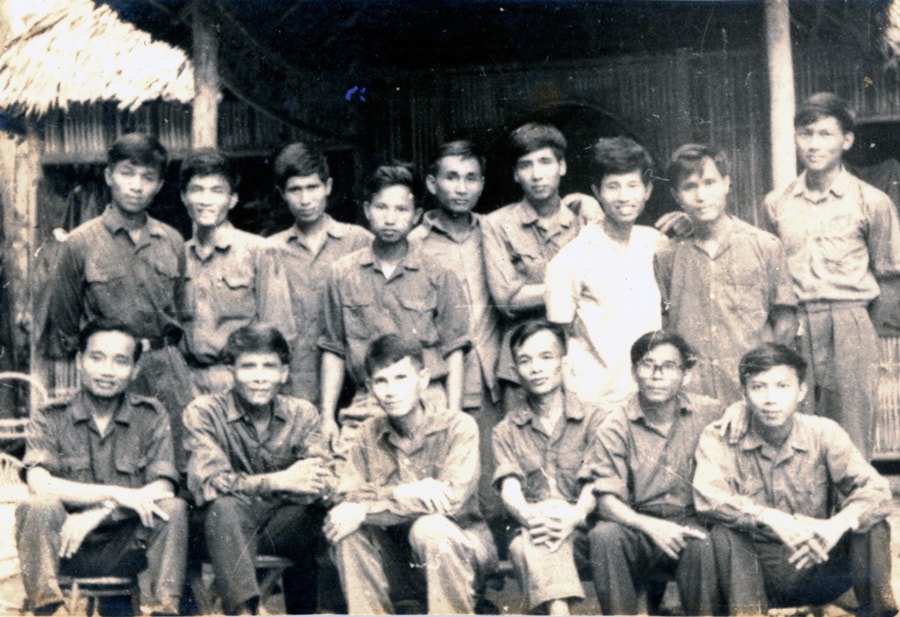
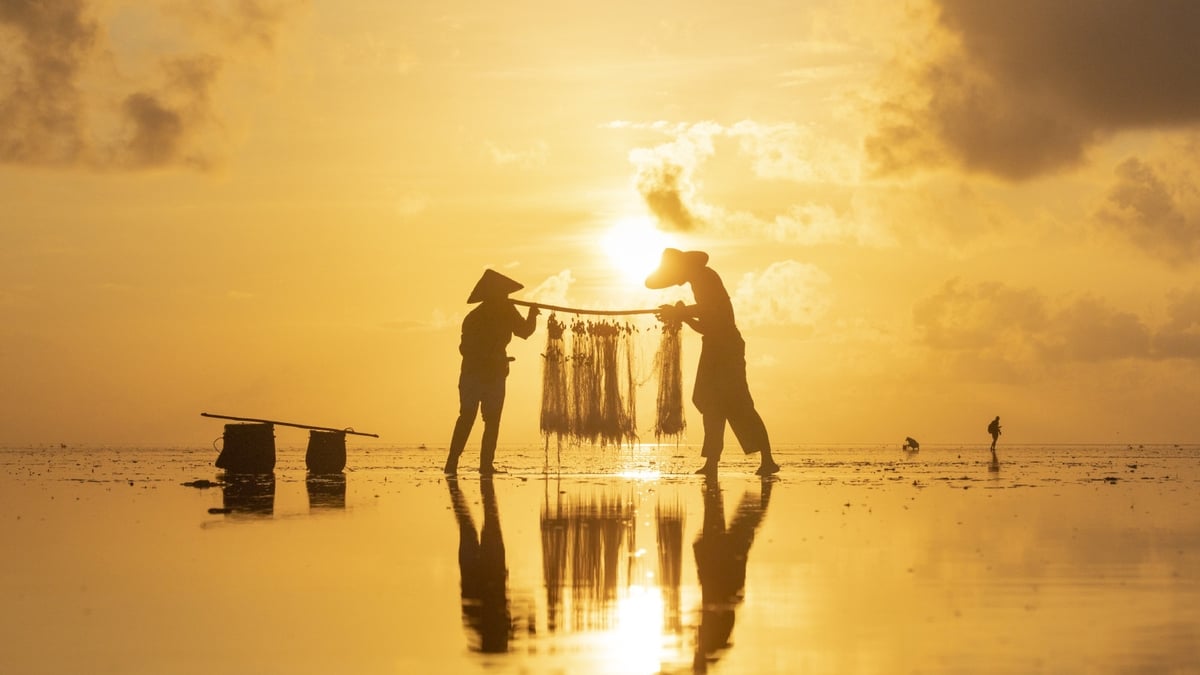
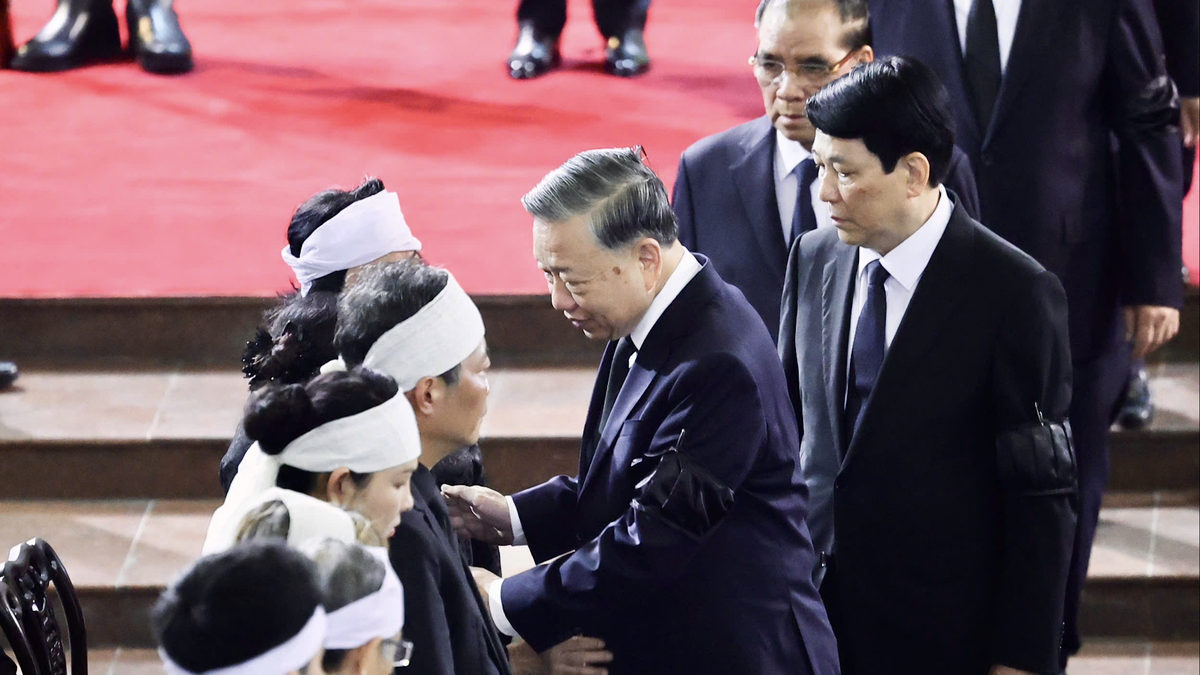

![[Photo] Anh Hoang - Dinh Duc successfully defended the men's doubles championship of the National Table Tennis Championship of Nhan Dan Newspaper](https://vphoto.vietnam.vn/thumb/1200x675/vietnam/resource/IMAGE/2025/5/23/d6ab3bcac02c49928b38c729d795cac6)

![[Photo] Top players gather at the 2025 Nhan Dan Newspaper National Table Tennis Championship](https://vphoto.vietnam.vn/thumb/1200x675/vietnam/resource/IMAGE/2025/5/23/9ad5f6f4faf146b08335e5c446edb107)

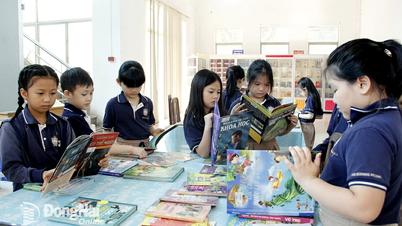

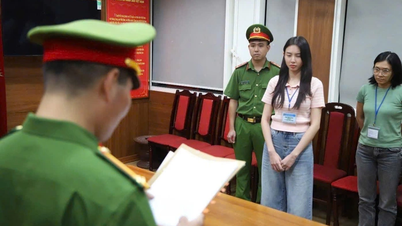
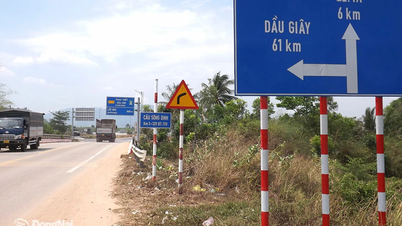

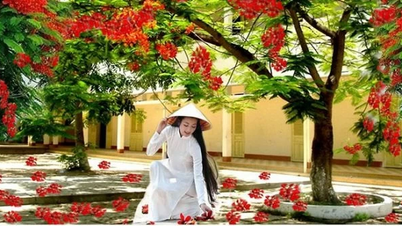




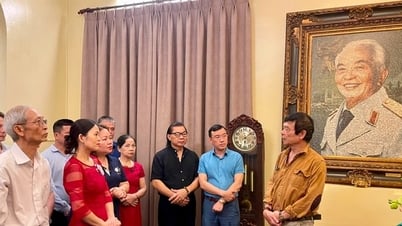
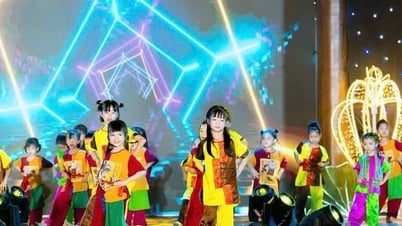
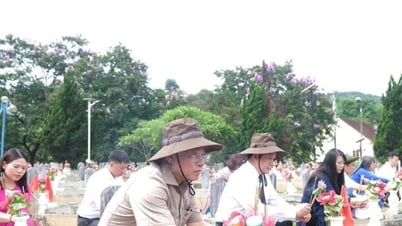
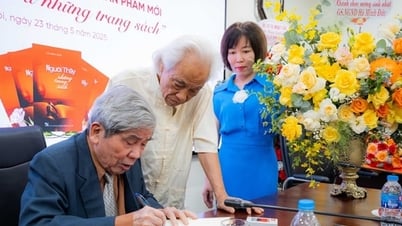






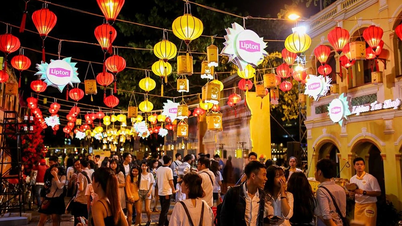

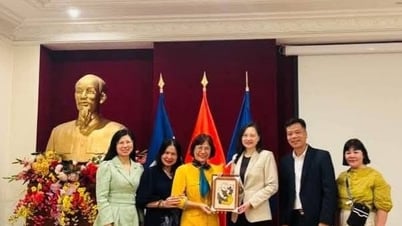


























![[Photo] The Central Party Executive Committee delegation visits former President Tran Duc Luong](https://vphoto.vietnam.vn/thumb/402x226/vietnam/resource/IMAGE/2025/5/24/32f67673454445aab0f1f2af331cb170)
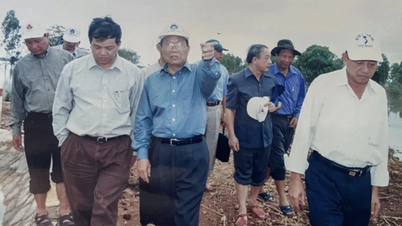

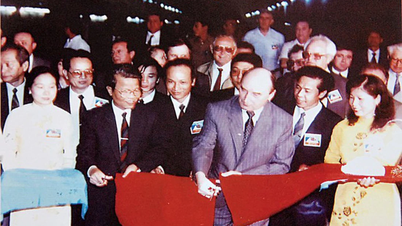


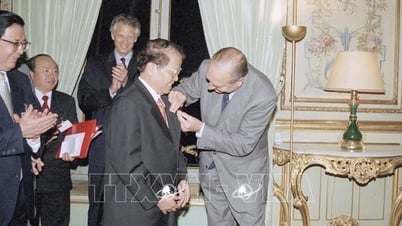

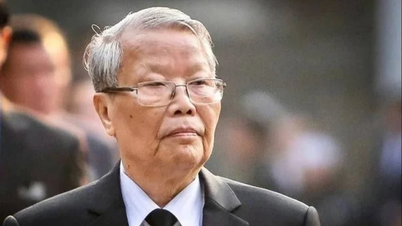








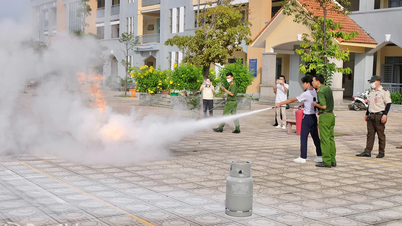




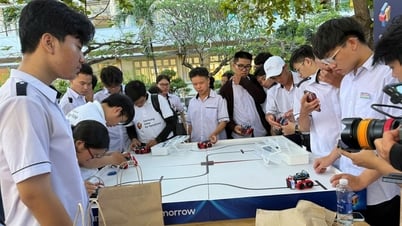

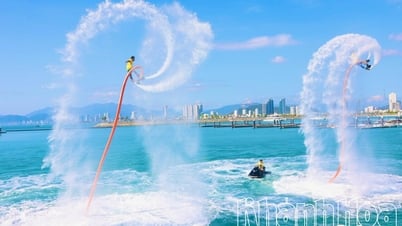













Comment (0)